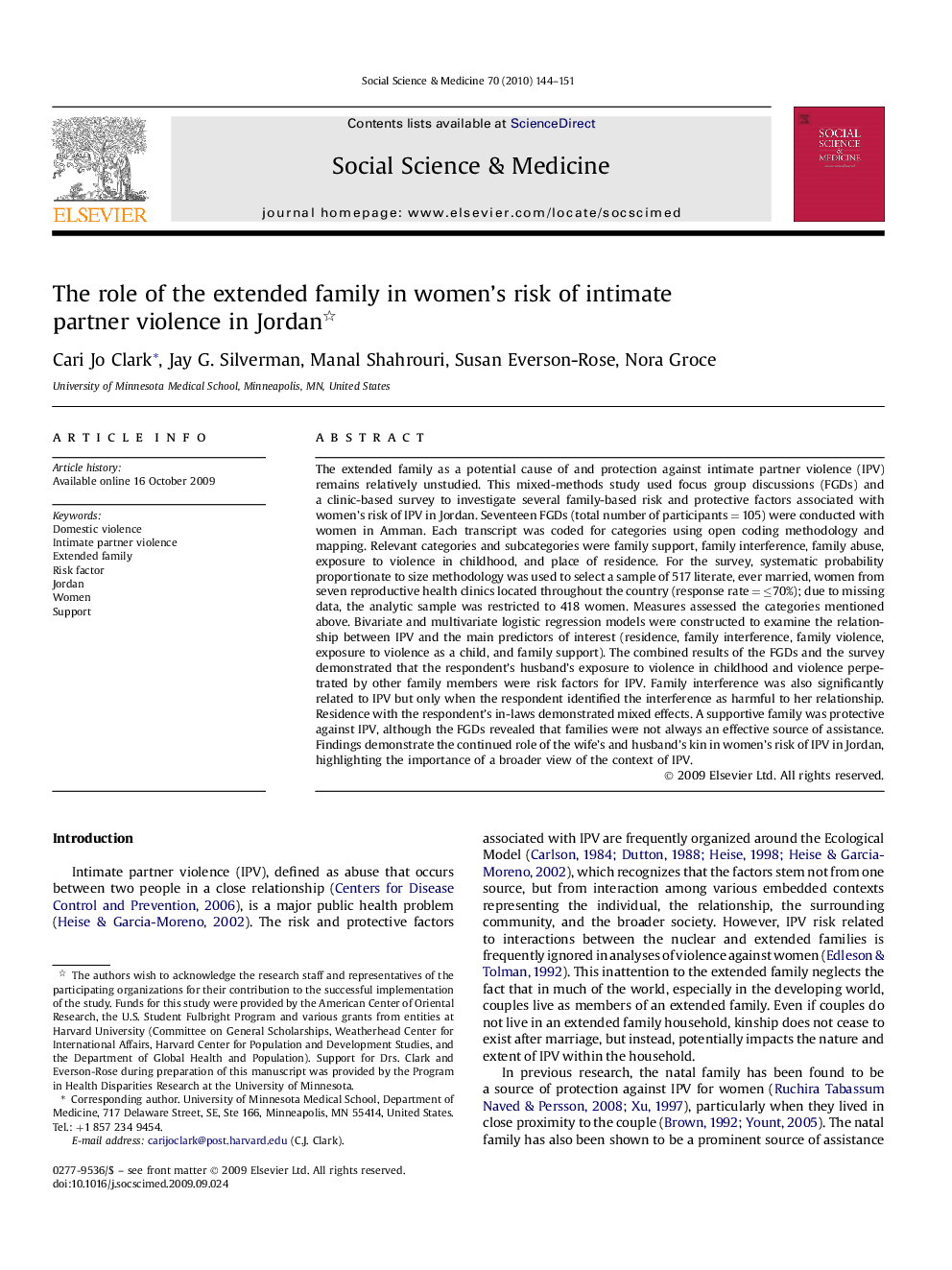| کد مقاله | کد نشریه | سال انتشار | مقاله انگلیسی | نسخه تمام متن |
|---|---|---|---|---|
| 953259 | 927575 | 2010 | 8 صفحه PDF | دانلود رایگان |

The extended family as a potential cause of and protection against intimate partner violence (IPV) remains relatively unstudied. This mixed-methods study used focus group discussions (FGDs) and a clinic-based survey to investigate several family-based risk and protective factors associated with women's risk of IPV in Jordan. Seventeen FGDs (total number of participants = 105) were conducted with women in Amman. Each transcript was coded for categories using open coding methodology and mapping. Relevant categories and subcategories were family support, family interference, family abuse, exposure to violence in childhood, and place of residence. For the survey, systematic probability proportionate to size methodology was used to select a sample of 517 literate, ever married, women from seven reproductive health clinics located throughout the country (response rate = ≤70%); due to missing data, the analytic sample was restricted to 418 women. Measures assessed the categories mentioned above. Bivariate and multivariate logistic regression models were constructed to examine the relationship between IPV and the main predictors of interest (residence, family interference, family violence, exposure to violence as a child, and family support). The combined results of the FGDs and the survey demonstrated that the respondent's husband's exposure to violence in childhood and violence perpetrated by other family members were risk factors for IPV. Family interference was also significantly related to IPV but only when the respondent identified the interference as harmful to her relationship. Residence with the respondent's in-laws demonstrated mixed effects. A supportive family was protective against IPV, although the FGDs revealed that families were not always an effective source of assistance. Findings demonstrate the continued role of the wife's and husband's kin in women's risk of IPV in Jordan, highlighting the importance of a broader view of the context of IPV.
Journal: Social Science & Medicine - Volume 70, Issue 1, January 2010, Pages 144–151